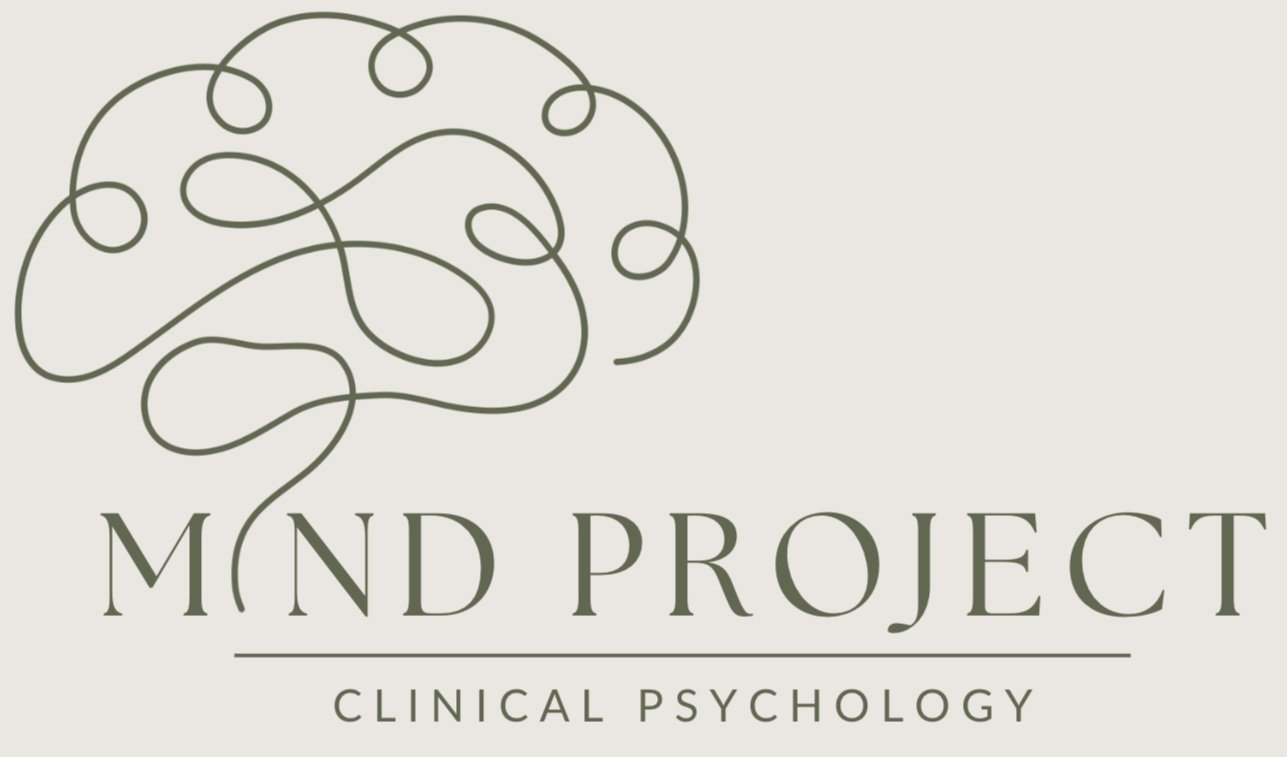Attention Deficit and Hyperactive Disorder Assessment
Attention Deficit Hyperactivity Disorder (ADHD) is a neurodevelopmental disorder characterised by persistent patterns of inattention, hyperactivity, and impulsivity. Individuals with ADHD often struggle to focus on tasks, organise their thoughts, or sustain attention for prolonged periods. They may also exhibit hyperactive behaviours, such as restlessness and excessive talking, as well as impulsive actions, like making hasty decisions without considering the consequences. ADHD typically emerges in childhood but can persist into adolescence and adulthood, affecting various aspects of life, including academic and occupational performance, relationships, and self-esteem. Effective management and support, often including therapy and medication, can help individuals with ADHD lead fulfilling lives by addressing their unique challenges and harnessing their strengths.
What is ADHD?
We do ADHD assessments for
Teens
Children 6+
Adults
Assessment Process
-

1. Clinical Assessment Interview
In the first session, we conduct a comprehensive Clinical Assessment Interview at our Kogarah psychology clinic, which typically lasts for about 2 hours. For assessments involving children, we also include an interview with their caregiver to ensure a holistic understanding. During this session, we will provide you with a set of online questionnaires, tailored to your specific needs. For children, this includes assessments such as ABAS-3, Conners, and RCADs, while for adults, it encompasses ABAS-3, Brief A, CAARS, and DASS-21. These questionnaires will be completed in the comfort of your home, allowing you to take your time. The cost for this session is $400, and it serves as the foundation for the insightful journey ahead.
-

2. Assessment
In our second session, which extends for approximately 2 and a half hours, we dive deeper into the assessment process. The cost for this session is $1210, and it includes the essential report writing and scoring work carried out after the appointment, ensuring you receive a comprehensive evaluation. During this session, we administer a range of assessments tailored to the individual's age and specific needs. For children, assessments may include CVLT-III, DKEFS, and WISC-V, while for adults, the assessment typically encompasses CVLT-III, DKEFS, and WAIS-IV. This session is a pivotal step in the assessment process.
-

3. Feedback Session
In session 3, you'll spend an hour with our experienced psychologist at the Kogarah clinic. This session costs $200. In this session you'll receive your comprehensive Assessment Report, expert feedback, and psychoeducation. This session is highly beneficial as it equips individuals with a deeper understanding of their condition, fostering a sense of empowerment and control over their mental health. It also enables individuals to make informed decisions regarding treatment options and strategies for managing their well-being.
ADHD Assessment Fee Overview
Session 1
$400
Approximately 2 hours
Session 2
$1210
Approximately 2.5 hours. Price includes an 8 hour report scoring and write up by clinician
Session 3
$200
Approximately 1 hour
The ADHD Assessment costs $1810 in total. After the first session, we'll let you know if a formal assessment is needed. If not, you'll only be charged for the first session.
How a formal diagnosis of ADHD may benefit you.
Improved Relationships: Understanding ADHD can lead to better communication and relationships, as loved ones can also learn about it and how to offer support.
Work and Academic Success: It helps in obtaining workplace or academic accommodations, allowing you to perform at your best.
Education: It empowers you with knowledge about ADHD, enabling you to develop strategies to manage symptoms effectively.
Treatment: It opens the door to appropriate treatments, including medication, therapy, and behavioral interventions, which can significantly improve symptoms and quality of life.
Health: Managing ADHD can lead to improved mental and emotional well-being, reducing stress and anxiety associated with untreated symptoms.
Validation: It can provide validation for your struggles, reassuring you that your difficulties are not due to laziness or lack of effort.
Advocacy: It enables you to advocate for yourself and others with ADHD, reducing stigma and raising awareness about the condition.
Personal Growth: It encourages personal growth and resilience by focusing on strengths and finding ways to mitigate challenges.
Understanding: Knowing you have ADHD helps you understand why you may have experienced challenges with focus, impulsivity, and organization throughout your life.
Self-Acceptance: It promotes self-acceptance and self-compassion, allowing you to embrace your unique strengths and challenges.
Common Signs of ADHD
INATTENTION
Difficulty sustaining attention
Frequent careless mistakes
Trouble with organisation
Avoidance of tasks that require mental effort
Frequently losing items
Forgetfulness in daily activities
IMPULSIVITY
Impatient waiting for one's turn
Interrupting others in conversations or games
Difficulty delaying gratification
Acting without thinking about potential consequences
HYPERACTIVITY
Inability to remain seated in situations where it's expected
Intrusive or impulsive behavior
Excessive talking or difficulty staying quiet
Restlessness or fidgeting
ADDITIONAL CHARACTERISTICS
Poor time management and punctuality
Frequent mood swings
Impaired executive functioning
Chronic procrastination
Difficulty following through on tasks or commitments
Diagnostic tools used for our ADHD Assessments
— ABAS
TThe ABAS, or Adaptive Behavior Assessment System, is a comprehensive tool used to assess and measure adaptive behavior in individuals of various age groups. Adaptive behaviours are the everyday skills and abilities needed for independent functioning and social participation. The ABAS evaluates an individual's adaptive skills across various domains, such as communication, daily living skills, socialisation, and motor skills.
— Conners (for Children)
The Conners assessment refers to a set of psychological tools used to assess and measure various aspects of ADHD and related behavioural and emotional issues in individuals. It comes in several versions, such as the Conners 3rd Edition (Conners-3), Conners Comprehensive Behavior Rating Scales (Conners CBRS), and Conners Early Childhood (Conners EC), each tailored to different age groups. These assessments help clinicians understand an individual's ADHD symptoms, behavioural challenges, and emotional well-being, aiding in diagnosis and treatment planning.
— RCAD (for Children)
The RCAD, or Revised Children's Anxiety and Depression Scale, is a widely used self-report assessment tool designed to measure symptoms of anxiety and depression. It is commonly utilised by mental health professionals to assess emotional well-being in young individuals. The RCAD questionnaire consists of items that inquire about a child's thoughts, feelings, and behaviours related to anxiety and depression, providing valuable insights into their emotional state and helping in the identification of potential mental health issues.
— CVLT
The CVLT, or California Verbal Learning Test, is a neuropsychological assessment tool used to evaluate an individual's verbal learning and memory abilities. It assesses an individual's capacity to learn and recall a list of words over a series of trials and provides insights into their verbal memory, attention, and cognitive function. The CVLT is commonly used in clinical and research settings to aid in the diagnosis and assessment of various neurological and psychiatric conditions. Different versions and adaptations of the CVLT exist to suit various age groups and specific assessment needs.
— DKEFS
The DKEFS, or Delis-Kaplan Executive Function System, is a neuropsychological assessment tool designed to evaluate a wide range of executive functions and cognitive abilities in individuals. Executive functions refer to high-level cognitive processes that help individuals plan, organise, manage time, initiate tasks, switch between activities, and regulate their behavior. The DKEFS consists of various subtests that assess different aspects of executive functioning, including problem-solving, cognitive flexibility, inhibition, and working memory.
— WAIS (for Adults)
The WAIS, or Wechsler Adult Intelligence Scale, is a widely used standardised intelligence test designed to assess cognitive abilities and intellectual functioning in adults. It is intended for individuals aged 16 to 90 years and older. The primary purpose of the WAIS is to measure a person's general cognitive abilities, which include problem-solving, logical reasoning, memory, and other higher-level thinking skills. The WAIS assesses a wide range of cognitive abilities through various subtests, including verbal comprehension, perceptual reasoning, working memory, and processing speed. It provides an overall measure of an individual's intellectual abilities known as the Full-Scale IQ (Intelligence Quotient). The results of the WAIS are used to understand an individual's cognitive strengths and weaknesses, diagnose learning disabilities, assess intellectual giftedness, and guide educational and intervention planning.
— BRIEF-A
The BRIEF-A stands for the Behavior Rating Inventory of Executive Function - Adult Version. It is an assessment tool designed to evaluate executive function in adults. The BRIEF-A assesses an individual's executive function skills by gathering information through standardised questionnaires. It provides insights into an adult's ability to manage daily life tasks, control their behaviour, and adapt to changing demands. The BRIEF-A is used to aid in the assessment and understanding of executive functioning in adults, including those with conditions that may impact executive function, such as ADHD, autism, or neurological disorders.
— WISC (For Children)
The WISC stands for the Wechsler Intelligence Scale. It is a widely used standardised intelligence test designed to assess the cognitive abilities and intellectual functioning of children and adolescents aged 6 to 16 years. The WISC provides a comprehensive evaluation of an individual's cognitive strengths and weaknesses across various domains, including verbal comprehension, perceptual reasoning, working memory, and processing speed. The primary goal of the WISC is to measure a child's intellectual abilities, such as problem-solving, logical reasoning, and abstract thinking. It is commonly used in clinical, educational, and research settings to assist in diagnosing learning disabilities, identifying giftedness, and guiding educational and intervention planning.
— CAARS (for Adults)
The CAARS, or Conners' Adult ADHD Rating Scales, is an assessment tool designed to measure and evaluate symptoms of Attention-Deficit/Hyperactivity Disorder (ADHD) in adults. It helps clinicians and mental health professionals gather information about the presence and severity of ADHD symptoms, as well as their impact on an individual's daily functioning. The CAARS includes self-report questionnaires and observer-rated assessments to provide a comprehensive view of ADHD symptoms. It assesses various aspects of ADHD, such as inattention, hyperactivity, impulsivity, and related behaviours. The information gathered from the CAARS aids in the diagnosis of ADHD in adults and helps guide treatment planning and intervention strategies.
— DASS-21 (for Adults)
The DASS-21, or Depression Anxiety Stress Scales - 21 Item version, is a self-report assessment tool designed to measure the severity of symptoms related to depression, anxiety, and stress in individuals. The DASS-21 consists of 21 items that inquire about various emotional and psychological symptoms, and respondents rate the frequency and severity of these symptoms over the past week. It provides valuable insights into an individual's emotional well-being and is used as part of mental health assessments to assess and monitor symptoms of depression, anxiety, and stress. The DASS-21 is widely used to evaluate emotional distress and assist in treatment planning for individuals with mood and anxiety disorders.
















